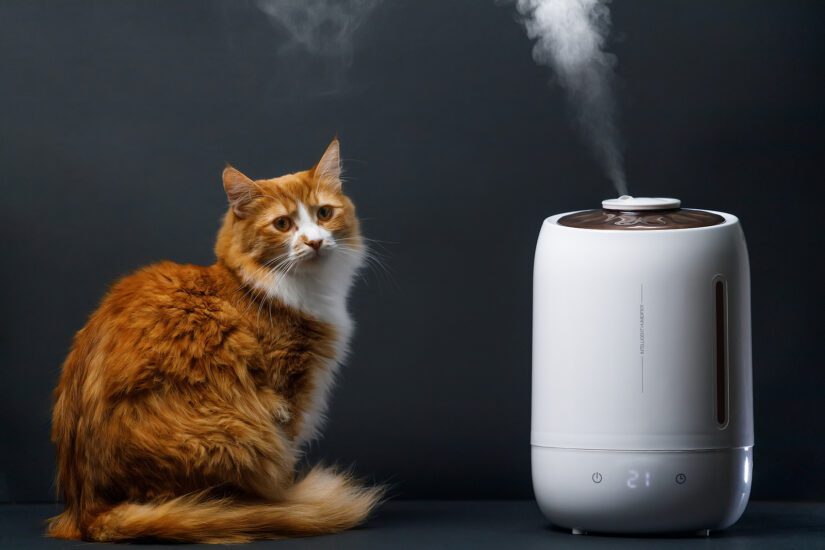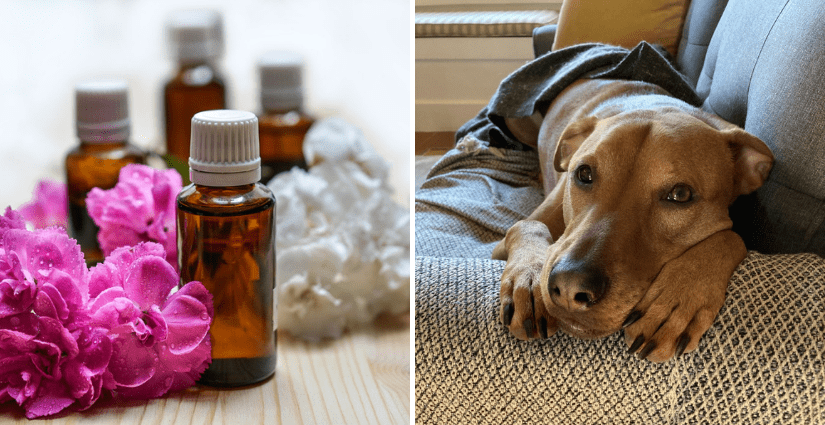Are essential oils a problem if you have a pet? The simple answer is yes, but the type of essential oil and its concentration can affect how sick your dog, cat, or other pet becomes. Masu.
What are essential oils?
Essential oils are concentrated plant extracts. One of the most popular is lavender, known for its calming and relaxing effects, found in diffusers and in everything from candles to shampoo to fragrances.
Effects of diffusers on pets
Active diffusers release a fine mist of essential oils and water into the air that your pet can inhale or ingest on their fur while grooming. Cats and birds are particularly sensitive to aerosolized oils.

“We have observed an increase in essential oil toxicity in recent years, due to a growing trend among pet parents to pursue holistic or natural treatments,” BC SPCA says Dr. Hannah Weizenfeld, Senior Manager of Animal Health at . “Birds are particularly susceptible due to their respiratory systems, and cats and other groomed animals are at risk of ingesting the oil. If you have birds in your home or have asthma, allergies, or similar conditions, Do not use the diffuser if animals are present.”
Dr. Weitzenfeld added that while pets ingesting small amounts of some essential oils may only experience gastrointestinal upset, certain oils like pennyroyal oil can cause serious liver problems. . Tea tree oil is another dangerous oil that can affect the nervous system if ingested. Cats are especially at risk for serious illness because of how they metabolize the phenols found in many essential oils.
In addition to ingestion and inhalation, pets can also suffer chemical burns from essential oils coming into direct contact with their skin. If your pet’s skin or fur gets oily, wash it off immediately with mild, unscented soap and water and consult your veterinarian.
It is also important to remember that dogs and cats are very sensitive to smells. A cat’s sense of smell is 14 times better than a human’s, while a dog’s sense of smell is 10,000 to 100,000 times more sensitive. A scent that may be pleasant to you may be unpleasant to your pet.

Which essential oils are dangerous for pets?
The Canadian Veterinary Medical Association lists the following essential oils as toxic: This is not a complete list. Essential oils are listed alphabetically, not by toxicity.
- Bergamot (Citrus bergamia, Citrus Aurantium)
- Bitter almond (Peumus ballus)
- Calamus essential oil (Acorus calamus)
- cinnamon
- clary sage
- Clove (Syzgium aromaticum)
- Eucalyptus (Eucalyptus spp.)
- European Pennyroyal (Mentha pulegium)
- Geranium oil (Pelargonium sp.)
- Horseradish (Amoracia rusticana)
- Taxus (Taxus spp.)
- Lavender (Lavender angustifolia)
- Lemon oil (citrus lemonia) citronella
- Lemongrass (Cymbopogon citratus)
- Lime oil (Citrus aurantifolia)
- mustard
- Orange oil (Citrus sinensis)
- Oregano (Origanum vulgare hirtum)
- pennyroyal. American False Pennyroyal (Haedoma pulegioides)
- Pine, spruce and juniper oil
- Rose
- Rosemary
- sandalwood
- sassafras
- Tea tree (Melaleuca alternifolia)
- time
- Wintergreen, peppermint, spearmint, mint (Mentha sp.)
- worm seed
- Iran Iran

Common symptoms of essential oil poisoning in pets include:
- lethargy
- diarrhea
- vomiting
- depression
- drool
- decreased or absent appetite
- trembling
- Inflammation of the respiratory tract, skin, and mucous membranes
- Difficulty breathing: difficulty breathing, rapid breathing, gasping, coughing, or wheezing
If you think your pet has ingested essential oils or has a reaction to your diffuser, seek immediate medical attention from your veterinarian or emergency veterinary clinic. The sooner treatment begins, the better the results.
Additional resources:
Get the latest information from the BC SPCA
Want more pet tips like this in your inbox? Use the form below to subscribe to updates.

